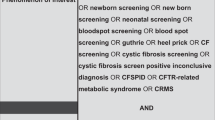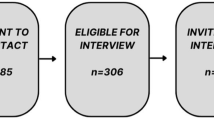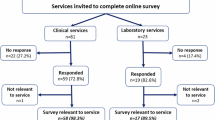Abstract
Ethicists contend that researchers are obliged to report genetic research findings to individual study participants when they are clinically significant, that is, when they are clinically useful or personally meaningful to participants. Yet whether such standards are well understood and can be consistently applied remains unknown. We conducted an international, cross-sectional survey of cystic fibrosis (CF) and autism genetics researchers using a quasi-experimental design to explore factors influencing researchers’ judgments. Eighty percent of researchers agreed, in principle, that clinically significant findings should be reported to individual participants. Yet judgments about when a specific finding was considered clinically significant or warranted reporting varied by scientific factors (replication, robustness, intentionality, and disease context), capacity of the research team to explain the results, and type of research ethics guidance. Further, judgments were influenced by the researchers’ disease community (autism or CF), their primary role (clinical, molecular, statistical) and their beliefs regarding a general reporting obligation. In sum, judgments about the clinical significance of genetic research results, and about whether they should be reported, are influenced by scientific parameters as well as contextual factors related to the specific research project and the individual researcher. These findings call into question the assumption that the conditions under which an obligation to disclose arises are uniformly understood and actionable. Adjudicating the clinical readiness of provisional data may be a responsibility better suited to evaluative experts at arms’ length of the provisional data in question, rather than a responsibility imposed upon researchers themselves.
Similar content being viewed by others
Log in or create a free account to read this content
Gain free access to this article, as well as selected content from this journal and more on nature.com
or
References
Shalowitz D, Miller F : The search for clarity in communicating research results to study participants. JME 2008; 34: e17.
Shalowitz D, Miller F : Communicating the results of clinical research to participants: attitudes, practices, and future directions. PLoS Med 2008; 5: e91.
Shalowitz D, Miller F : Disclosing individual results of clinical research: implications of respect for participants. J Am Med Assoc 2005; 294: 737–740.
Ravitsky V, Wilfond B : Disclosing individual genetic results to research participants. AJOB 2006; 6: 8–17.
Fernandez C, Kodish E, Weijer C : Informing study participants of research results: an ethical imperative. IRB 2003; 25: 12–19.
Knoppers B, Joly Y, Simard J, Durocher F : The emergence of an ethical duty to disclose genetic research results. Eur J Hum Genet 2006; 14: 1170–1178.
Miller FA, Christensen R, Giacomini M, Robert J : Duty to disclose what? Querying the putative obligation to return research results to participants. JME 2008; 34: 210–213.
Bookman EB, Langchorne AA, Eckfeldt JH et al: Reporting genetic research results: Summary and recommendations of an NHLBI working group. Am J Med Genet 2006; 140A: 1033–1040.
Fernandez C, Weijer C : Obligations in offering to disclose genetic research results. AJOB 2006; 6: 44–46.
Clarke A, English V, Harris H et al: Ethical considerations. Int J Pharml Med 2001; 15: 89–94.
Rothstein MA : Tiered disclosure options promote the autonomy and well-being of research subjects. AJOB 2006; 6: 20–21.
Ormond KE : Disclosing genetic research results: examples from practice. AJOB 2006; 6: 30–32.
Manolio TA : Taking our obligations to research participants seriously: disclosing individual results of genetic research. AJOB 2006; 6: 32–34.
Sharp RR, Foster MW : Clinical utility and full disclosure of genetic results to research participants. AJOB 2006; 6: 42–44.
Banks TM : Misusing informed consent: a critique of limitations on research subjects’ access to genetic research results. Sask L Rev 2000; 63: 539–580.
Lavieri RR, Garner SA : Ethical considerations in the communication of unexpected information with clinical implications. AJOB 2006; 6: 46–48.
Knoppers B, Chadwick R : Human genetic reserach: emerging trends in ethics. Nat Rev Genet 2005; 6: 75–79.
Dressler L, Juengst E : Thresholds and boundaries in the disclosure of individual genetic research results. AJOB 2006; 6: 18–20.
Partridge A, Winer E : Informing clinical trial participants about study results. J Am Med Assoc 2002; 288: 363–365.
Partridge A, Burstein H, Gelman R, Marcom P, Winer E : Do patients participating in clinical trials want to know study results? J Natl Cancer Inst 2003; 95: 67–68.
Partridge A, Wong J, Knudsen K et al: Offering participants results of a clinical trial: sharing results of a negative study. Lancet 2005; 365: 963–964.
Godard B, Marshall J, Laberge C : Community engagement in genetic research: results of the first public consultation for the Quebec CARTaGENE project. Community Genet 2007; 10: 147–158.
Murphy J, Scott J, Kaufman D, Geller G, LeRoy L, Hudson K : Public expectations for the return of results from large-cohort genetic research. AJOB 2008; 8: 36–43.
Wendler D, Pentz R : How does the collection of genetic test results affect research participants? Am J Med Genet A 2007; 143A: 1733–1738.
Hoeyer K, Olofsson B, Mjorndal T, Lynoe N : Informed consent and biobanks: a population-based study of attitudes towards tissue donation for genetic research. Scand J Public Health 2004; 32: 224–229.
Snowdon C, Garcia G, Elbourne D : Reactions of participants to the results of a randomised controlled trial: exploratory study. BMJ 1998; 317: 21–26.7.
Schulz C, Riddle M, Valdimirsdottir H, Abramson D, Sklar C : Impact on survivors of retinoblastoma when informed of study results on risk of second cancers. Med Pediatr Oncol 2003; 41: 36–43.
Hayeems R, Miller F, Christensen R et al: The canadian consortium for cf genetics studies reporting cystif fibrosis (CF) modifier gene effects to study participants: pilot survey. American Society of Human Genetics: Philadelphia, 2008.
Meltzer L : Undesirable implications of disclosing individual genetic results to research participants. AJOB 2006; 6: 28–30.
Parker L : Best laid plans for offering results go awry. AJOB 2006; 6: 22–23.
Ossorio P : Letting the gene out of the bottle: a comment on returning individual research results to participants. AJOB 2006; 6: 24–25.
Dixon-Woods M, Jackson C, Windridge K, Kenyon S : Receiving a summary of the results of a trial: qualitative study of participants’ views. BMJ 2006; 332: 206–210.
Miller F, Hayeems R, Bytautas J : What is a meaningful result? Disclosing the results of genomic research in autism to research participants. Eur J Hum Genet 2010; 18: 867–871.
Kerem B, Rommens J, Buchanan J et al: Identification of the cystic fibrosis gene: genetic analysis. Science 1989; 245: 1973–1980.
Szatmari P, Paterson AD, Zwaigenbaum L, Roberts W, Brian J, Liu X-Q : Mapping autism risk loci using genetic linkage and chromosomal arrangements. Nat Genet 2007; 39: 319–328.
Weiss LA, Shen Y, Korn JM, Arking DE, Miller DT, Fossdal R : Association between microdeletion and microduplication at 16p11.2 and autism. N Engl J Med 2008; 358: 667–675.
Dillman D, Smyth J, Christian L : Internet, Mail, and Mixed-Mode Surveys: The Tailored Design Method. 3rd edn John Wiley & Sons, Inc: Hoboken, New Jersey, 2009.
Beskow L, Burke W, Merz J : Informed consent for population-based research involving genetics. J Am Med Assoc 2001; 286: 2315–2321.
Klitzman R : Questions, complexities, and limitations in disclosing individual genetic results. AJOB 2006; 6: 34–36.
Taylor B : Factorial surveys: using vignettes to study professional judgement. Br J Soc Work 2006; 36: 1187–1207.
Wallander L : 25 years of factorial surveys in sociology: a review. Soc Sci Res 2009; 38: 505–520.
Ludwick R, Wright M, Zeller R, Dowding D, Lauder W, Winchell J : An improved methodology for advancing nursing research: factorial surveys. ANS Adv Nurs Sci 2004; 27: 224–238.
Xu H : An algorithm for constructing orthogonal and nearly-orthogonal arrays with mixed levels and small runs. Technometrics 2002; 44: 356–368.
Miller FA, Hayeems RZ, Li L, Bytautas JP : One thing leads to another: ensuant obligations when researchers report genetic research results to study participants. J Law Med Ethics, (Under review).
Miller FA, Hayeems RZ, Li L, Bytautas JP : What does ‘respect for persons’ require? Attitudes and practices of genetics researchers in informing research participants about research. Am J Med Genet, (Under review).
Schwappach DLB, Koeck CM : What makes a error unacceptabe? A factorial survey on the disclosure of medical errors. Int J Qual Health Care 2004; 16: 317–326.
Pan W : Goodness-of-fit tests for GEE with correlated binary data. Scand Stat Theory Appl 2002; 29: 101–110.
R version 2.10.1 (2009-12-14): Copyright (C). The R Foundation for Statistical Computing, 2009. ISBN 3-900051-07-0.
Yan J, Højsgaard S, Halekoh U : Generalized Estimating Equation Package. Geepack version 1.0-17 dated 28-01-2010.
Burke W, Atkins D, Gwinn M et al: Genetic test evaluation: Information needs of clinicians, policy makers, and the public. Am J Epidemiol 2002; 156: 311–318.
Meacham MC, Starks H, Burke W, Edwards K : Reserachers perspectives on disclosure of incidental findings in genetic research. J Empir Res Hum Res Ethics 2010; 5: 31–41.
Hailey DM : Health technology assessment in Canada: diversity and evolution. Med J Aust 2007; 187: 286–288.
Acknowledgements
We thank our study participants for taking the time to complete our survey as well as Genome Canada for funding this project. We also thank our clinical collaborators in the context of cystic fibrosis genetic research (Drs Peter Durie, Julian Zielenski, and Mary Corey) and autism spectrum disorders genetic research (Drs Stephen Scherer, Peter Szatmari, Wendy Roberts, and Lonny Zweigenbaum). Fiona A Miller is supported by a New Investigator Award from the Canadian Institutes of Health Research (80495). Robin Z Hayeems is supported by a CADRE Postdoctoral Fellowship from the Canadian Institutes of Health Research and the Canadian Health Services Research Foundation. Sponsors’ support for this work should not imply endorsement of the conclusions, for which the authors retain sole responsibility.
Author information
Authors and Affiliations
Corresponding author
Ethics declarations
Competing interests
The authors declare no conflict of interest.
Additional information
Supplementary Information accompanies the paper on European Journal of Human Genetics website
Supplementary information
Rights and permissions
About this article
Cite this article
Hayeems, R., Miller, F., Li, L. et al. Not so simple: a quasi-experimental study of how researchers adjudicate genetic research results. Eur J Hum Genet 19, 740–747 (2011). https://doi.org/10.1038/ejhg.2011.34
Received:
Revised:
Accepted:
Published:
Issue date:
DOI: https://doi.org/10.1038/ejhg.2011.34
Keywords
This article is cited by
-
Health data research on sudden cardiac arrest: perspectives of survivors and their next-of-kin
BMC Medical Ethics (2021)
-
The psychosocial and service delivery impact of genomic testing for inherited retinal dystrophies
Journal of Community Genetics (2019)
-
Does a Duty of Disclosure Foster Special Treatment of Genetic Research Participants?
Journal of Genetic Counseling (2013)
-
Parents’ Perspectives on Participating in Genetic Research in Autism
Journal of Autism and Developmental Disorders (2013)
-
One thing leads to another: the cascade of obligations when researchers report genetic research results to study participants
European Journal of Human Genetics (2012)



